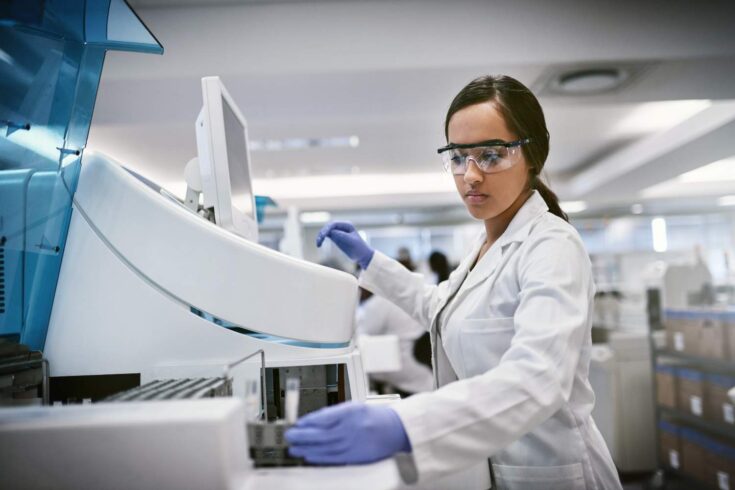The cell and gene therapy (CGT) sector is producing innovative new medicines to treat serious diseases, such as cancer. Using patients’ own cells, it’s creating personalised ‘living medicines’ in which cells are taken out of a patient’s body, modified and grown, and inserted back into the body, where they help fight the disease.
Success rates for this treatment, known as chimeric antigen receptor T-cell (CAR-T) therapy, are strong, 80 to 90% for child leukaemia cancer patients, for example.
CGT manufacturing is currently expensive and resource-intensive, meaning therapies like CAR-T are only available to a very small number of patients. This can put clinicians in a terrible position of having to choose which of their patients get to receive a life-saving treatment.
Ori Biotech is developing new technology to address this problem. A leader in CGT manufacturing technology the company combines biology, data, engineering and automation into a proprietary, full stack manufacturing system that closes, automates, digitises and standardises CGT manufacturing.
Bringing the manufacturing side
According to Jason Jones, Chief Business Officer at Ori Biotech, digitisation will bring the manufacturing side of the industry into the 21st century.
Jason said:
At the moment, there are problems in the sector with manufacturing at scale. It’s a highly manual process that involves a lot of staff and putting data down on paper. This also leaves a window for error and variability, on top of the innate variability of the living medicines.
Ori Biotech’s technology platform automates, standardises and digitises the manufacturing process, which Jason says:
- improves the quality of the data
- takes manual variability out of the system
- leads to greater time and cost efficiencies.
This also enables CGT manufacturers to make these medicines available to more people more quickly, leading to better patient access.
A digitally native approach
Jason said the cloud-based technology will de-risk the sector in several ways:
We have to innovate and bring a digitally native approach to our industry. Sometimes, change is seen as a risk, but the risk of not changing is higher, patients need access to these therapies now.
UKRI support, through the Medicines Manufacturing challenge accelerated what Ori Biotech has been able to achieve in a short space of time.
Jason explained:
We would be a couple of years behind without that funding and support. It helped us accelerate our technical development and our progression to commercialisation.
Ori Biotech recently raised over $100 million in Series B funding. This allows Ori Biotech to further expand key personnel across all functions, and rapidly transition through pre-commercialisation to the launch of its innovative CGT manufacturing platform.
Top image: Credit: LaylaBird, E+ via Getty Images

